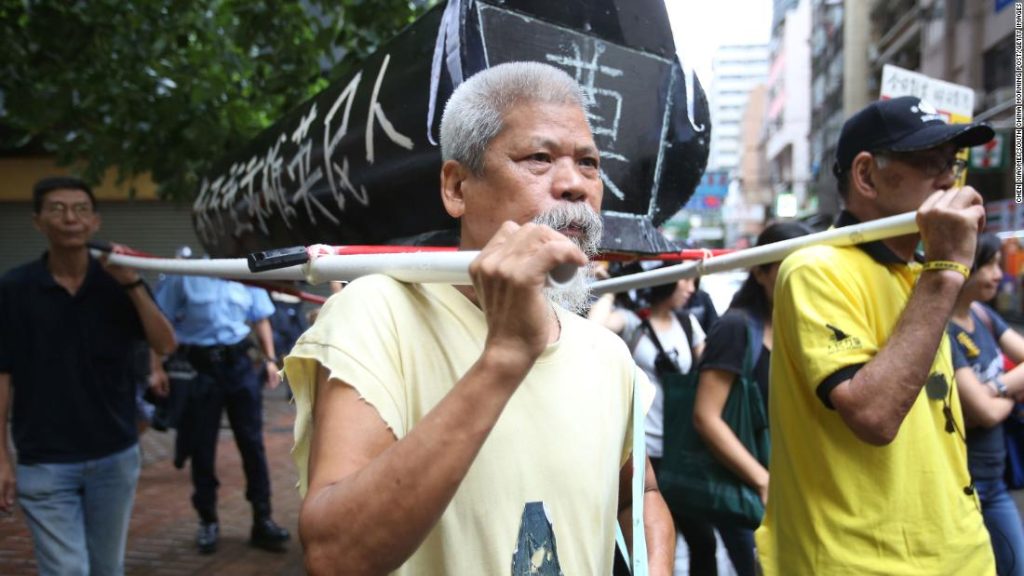Hong Kong court jails veteran activist for plan to protest Beijing Olympics

Koo Sze-yiu, 75, had planned to carry a homemade wooden coffin to China’s Liaison Office in the city on the opening day of the Games on February 4, but national security police raided his apartment and arrested him that day before any protest could take place.Koo had denied a charge of “attempting or preparing to commit an act or acts with seditious intention,” public broadcaster RTHK reported. Prior to his sentence, Koo had been held in custody for more than five months after being denied bail on national security grounds.Hong Kong’s sedition law was introduced by the British colonial government in 1938, outlawing “hatred or contempt or disaffection” toward the monarch and the colonial administration. It remained on the statutes after the city was handed over to China in 1997.Unused for decades, the law has been revived by Hong Kong prosecutors amid Beijing’s broad crackdown on civil society following the city’s 2019 pro-democracy protests.In one high-profile ongoing case, five speech therapists have been accused of “conspiracy to distribute seditious materials” for publishing a series of children’s picture books.Sedition carries a maximum sentence of two years in jail for a first offense and three years for a subsequent conviction.Critics have accused the Hong Kong authorities of turning to the sedition law — along with a more recently introduced national security law — to clamp down on dissent.The Hong Kong government has repeatedly defended the national security legislation, saying it restored order to the city following the widespread pro-democracy protests.The national security law was enacted in 2020 and outlaws acts of secession, subversion, terrorism, and collusion with foreign forces — with a maximum sentence of life in prison.Two years after its introduction, no opposition lawmakers remain in the Hong Kong legislature, while nearly all of the city’s leading pro-democracy figures, including activists and politicians, have either been forced into exile or imprisoned — with dozens of them behind bars.







